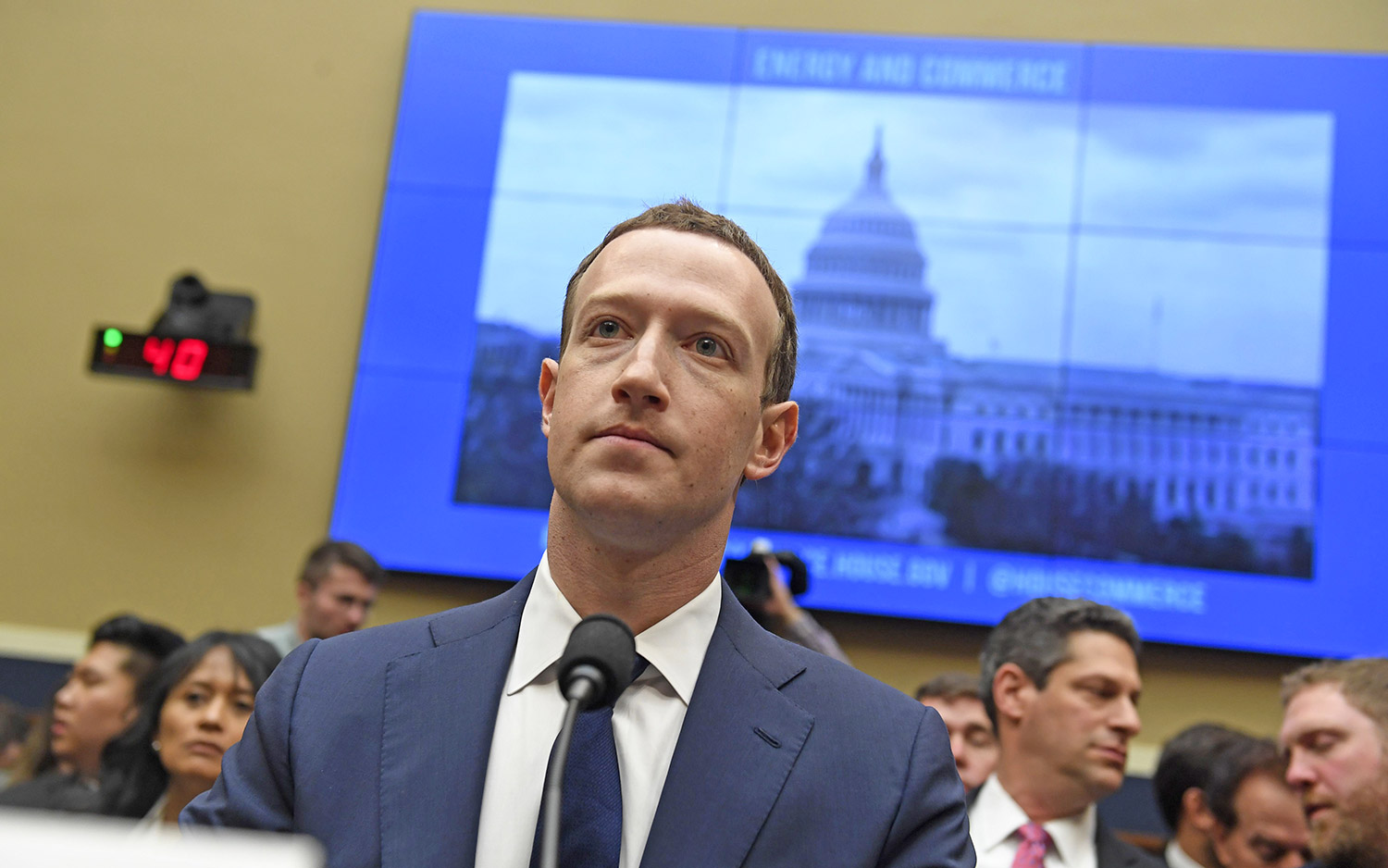8 Key Takeaways From Zuckerberg's Senate Testimony
Facebook CEO Mark Zuckerberg was grilled by U.S. senators about Cambridge Analytica, Russian election interference and political censorship.
Facebook CEO Mark Zuckerberg faced some pretty harsh questioning from U.S. senators today (April 10) over how the company handles the data of members of its online social network and how much of that data gets handed over to third parties.
Questions aimed at the Facebook CEO during the hearing included Sen. Dick Durbin, D-Illinois, asking whether Zuckerberg would reveal the Washington hotel he was staying in, and Sen. Ted Cruz, R-Texas, accusing Facebook of suppressing conservative opinions.

Terms of Service Blown Up
The most devastating criticism came from Sen. Richard Blumenthal, D-Connecticut, whose aides displayed an enlarged section of the Terms of Service for "This Is Your Digital Life" app. The text made clear that collected user data might be sold or passed along to third parties. Zuckerberg said he had never seen that text before.
MORE: Use This Shortcut to See If Your Facebook Data Leaked
Blumenthal's aides then displayed language from a settlement that Facebook reached with the Federal Trade Commission in 2011 that barred Facebook from letting other commercial services get user data.
The senator pointed out that "This Is Your Digital Life," which ended up passing along the data of an estimated 87 million Facebook users to the political consulting firm Cambridge Analytica, clearly violated the FTC consent decree from the get-go.
Sign up to get the BEST of Tom's Guide direct to your inbox.
Get instant access to breaking news, the hottest reviews, great deals and helpful tips.
"Has anyone been fired from the app review team?" Blumenthal asked Zuckerberg.
"Not over this, no," Zuckerberg admitted.
The Facebook CEO spent much of the afternoon facing questions from both sides of the aisle during a hearing called in the wake of the Cambridge Analytica scandal, in which a political data-mining firm got a hold of the personal information of millions of Facebook users.
The hearing was a special joint session of the Senate Judiciary Committee and the Senate Commerce Committee, and all 44 senators on both committees were slated to ask Zuckerberg questions.
Fix This Or Else
"If you guys don't get your act in order, none of us are gonna have privacy anymore," Sen. Bill Nelson, D-Florida, the ranking member of the Commerce committee, told Zuckerberg. "If Facebook can't fix the privacy invasions, then we will have to."
Durbin started off his five minutes of questioning with a zinger, asking Zuckerberg: "Would you be comfortable telling us the hotel you stayed in last night?"
"Um ..... no," Zuckerberg responded.
"Would you be comfortable telling us who you've messaged with in the past few days?" Durbin asked.
"No," replied Zuckerberg.
'A Lot of Mistakes'
John Thune, R-South Dakota, chairman of the Commerce committee, was similarly blunt.
"You have a 14-year history of apologizing for unwise decisions," he told Zuckerberg. "How is today's apology different? Why should we trust Facebook?"
"We have made a lot of mistakes in running the company," Zuckerberg replied. "We are going through a broad philosophical shift. In the first 10 to 12 years, we were concerned with building tools and building the company. .... People will see real differences."
'Arms Race' with Russian Trolls
Asked by Sen. Dianne Feinstein, D-California, the ranking member of the Judiciary Committee, whether he had regrets, Zuckerberg admitted to one major one.
"We were slow to identify the [Russian] disinformation operations," he said. "We're now doing a better job of identifying fake accounts, especially in the French elections" that took place in 2017.
"This is an arms race," Zuckerberg added about the disinformation campaigns. "They're getting better at this, and we have to make sure we're getting better too."
Facebook Cooperating with Mueller Investigation
Zuckerberg also disclosed what many political observers had assumed: Facebook is cooperating with Special Counsel Robert Mueller's investigation into Russian influence upon the 2016 presidential election.
"Have you or others at Facebook been interviewed by the Special Counsel's office," asked Sen. Patrick Leahy, D-Vermont.
"Yes, others have, but I have not," Zuckerberg replied, but then deflected that line of questioning by stating, "I want to make sure I don't say anything here that's confidential."
Cruz: Do You Censor Republicans?
More than one senator brought up the question of whether Facebook suppresses conservative viewpoints, and none was more aggressive about it than Cruz.
"Many Americans are concerned that Facebook and other internet companies are engaged in censorship of conservative opinions," Cruz said. "There appears to be a pervasive pattern of political bias."
Zuckerberg responded that Silicon Valley is "an extremely left-leaning place," but maintained that he tried to make sure that no non-violent political opinion was suppressed on Facebook.
"Have you ever made hiring or firing decisions based on political views?" Cruz asked.
"We have not," Zuckerberg said.
"What about Palmer Luckey?" Cruz asked, referring to the creator of the Oculus Rift VR headset, who left Facebook in early 2017 after having garnered criticism on social media for expressing support of President Donald Trump.
"That was an internal personnel matter," Zuckerberg said. "I am very committed that Facebook is a platform for all ideas."
Cruz then asked if Zuckerberg knew of any Facebook staffers "who have supported a Republican candidate for office."
"We don't ask people those questions," Zuckerberg replied.
No Listening to Conversations
Gary Peters, D-Michigan, addressed a long-running conspiracy theory regarding Facebook listening to what its users say within range of mobile phones, then displaying ads based on the conversation.
"Does Facebook use audio obtained from mobile devices to enrich data about its users?" Peters asked.
"No," said Zuckerberg. "We don't do that."
Won't Commit to Consent Bill
Sen. Ed Markey, D-Massachusetts, today introduced a bill that would require explicit, opt-in consent from users of online platforms before those platforms could use their data. He tried to get Zuckerberg to commit to endorsing the legislation, but Zuckerberg didn't take the bait.
"In principle," Zuckerberg replied, he would support such a bill, "but we need to work out details."
Paul Wagenseil is a senior editor at Tom's Guide focused on security and privacy. He has also been a dishwasher, fry cook, long-haul driver, code monkey and video editor. He's been rooting around in the information-security space for more than 15 years at FoxNews.com, SecurityNewsDaily, TechNewsDaily and Tom's Guide, has presented talks at the ShmooCon, DerbyCon and BSides Las Vegas hacker conferences, shown up in random TV news spots and even moderated a panel discussion at the CEDIA home-technology conference. You can follow his rants on Twitter at @snd_wagenseil.

